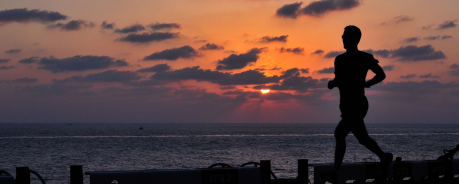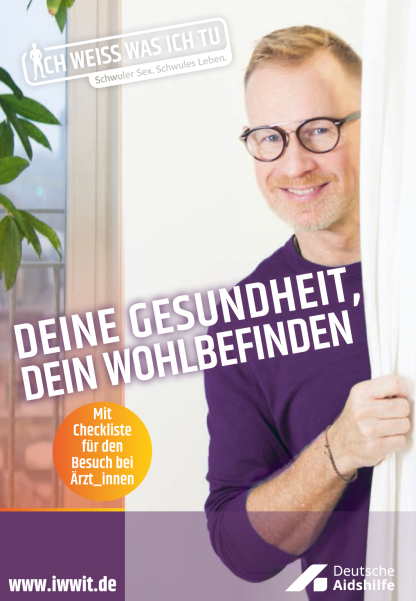Physical well-being

Gays are…?
A look at any big gay dating platform clearly shows the body-beautiful and an obsession with youth are practiced far more among homo- and bisexual men than in the average population. Gays are slim, muscular, potent, and hairless creatures with a sense for fashion and skin care. You will often find them at the gym where they try to attain their scene-typical ideal of a flawless and desirable body. Those who do not live up to the dream fall through the cracks and are to be ignored... right?!
But look beyond the clichés and you see "the" scene does not exist. Various subcultures such as the bear or leather scene offer to many gays what they like and are looking for. And yet there are individuals or even whole groups who feel left out and do not want to be pigeonholed. They refuse to fit into any of the existing scenes and their ideals. Especially obesity, age or physical handicap should be mentioned as examples. But there are also other aspects such as the allegation of superficiality, that can lead to disengagement from "the scene" apart from simple physicality.
Health impact
Feeling uncomfortable or excluded can have an impact on physical and mental health. Studies have shown that gay and bisexual men suffer more often from dissatisfaction with their own bodies than their heterosexual counterparts. Almost half of them worry about their appearance and suffer from a sense of shame. The phenomenon known in psychological terms as “body-image stress" has led to an increase in social withdrawal and eating disorders in recent years.
Do something for yourself
No matter what you do, what you like, and where you feel you belong: do something for yourself and for your well-being. Especially among gay and bisexual men a lower self-esteem is all too common. A possible conflict between the lack of self-esteem and the desire for a perfect body can also have a negative effect on sexual conduct, especially one's own risk or protective behaviour.
In general, the following tips are considered helpful:
- Learn to love yourself
Do something good for yourself, even if it's hard at first. By "do something good" we mean pursuing a hobby. A lot of - even moderate - exercise and friends will never go amiss.
- Pay attention to your posture
In order to present a confident, self-assured image of yourself it is important to have this reflected in your posture. It may feel strange at first, but in time you will feel better about yourself and more attractive. Again, sports activities are helpful.
- Relaxation in the evening
After a stressful day a shower or bath is a wonderful treat. Add a nice cream or mask and you will feel better immediately.
- Pay attention to your eating habits
Besides a balanced, healthy diet, good company at meal time is always a bonus. A stimulating conversation and a good laugh definitely increase the feel-good factor.
- Interest in other people
An exchange with other people promotes well-being. Whether profound or more light-hearted, it keeps you on your toes and it is just plain fun.
- Drink sufficiently
The German Society for Nutrition (DGE) recommends for adults a total of 35 ml of beverages per day and per kilogram of body weight. Water, juice spritzers, fruit and herbal teas are considered to be ideal. Drinking too little reduces performance and can be harmful to your health.
Hein & Fiete as a place for social support
Not only is Hein & Fiete committed to prevention in terms of individual health behaviour, but we also work toward changing people's lives in order to promote the mental and physical well-being of gay and bisexual men in general. As an institution for social support, we offer space for self-help groups, organise events on various current topics and are personally available for you as a first port of call with further information at our switchboard center.
- Imprimer
Share on

